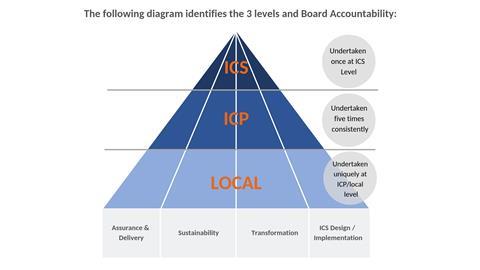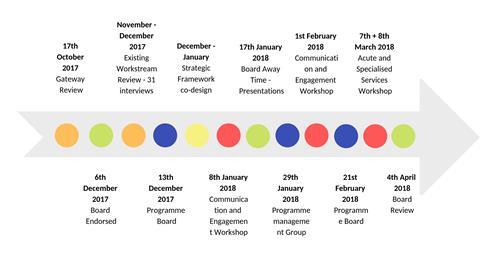How The NHS Transformation Unit’s work with Lancashire and South Cumbria ICS supported structured engagement and a culture of collaboration and co-design
![]()
This is paid-for content from our commercial partners. Find out more
In association with

The NHS Transformation Unit (TU) was commissioned by Dr Amanda Doyle to support the development of the Lancashire and South Cumbria Integrated Care System (ICS).
The first step of this process clearly underlined the ethos and intent of this work as Dr Doyle requested for the team to interview senior leaders and representatives across the area to seek their views and input to the developing proposals.
These structured interviews provided a good cross section of ideas and possible priorities for the system. It also provided a good opportunity to explain the vision of the developing Integrated Care System (ICS).

It was clear that by engaging people at the start of the journey underlined the culture of collaboration and learning from previous experiences across the system.
Lancashire and South Cumbria has a good track record of integrating care pathways with a number of Vanguards and nationally recognised exemplars. Within the overall system, there was recognition of five sub-regions, to be later described as Integrated Care Partnerships (ICPs).
Developing a System Framework
Lancashire and South Cumbria established an overarching board made up of Executive and Non-Executive representatives of the system. This allowed robust governance to be established and four areas of accountability for the Board were agreed:
-
Assurance & Delivery;
-
Sustainability;
-
Transformation;
-
ICS design/Implementation.
One of the major issues to address was to clarify the right level that activities and decisions would be made in a developing Integrated Care System. Importantly, the Board sought a balance of accountability and transformation to improve patient care without duplicating existing arrangements and effort. Through a series of co-design workshops (See Figure 1) it was agreed a System Framework would be developed based upon three levels:
-
What should be undertaken once (at a system wide ICS level);
-
What should be undertaken five times consistently (at a local ICP);
-
What should be undertaken uniquely (at a local ICP/place level).
This allowed for a System Framework to be agreed:
Figure 1.

The ICS System Framework was an excellent example of co-design and a process of structured engagement creating a culture of collaboration at the start of the journey. The framework was used to produce a comprehensive Action Plan defining clear governance, programmes of work and accountable leaders.
Whilst the NHS Long Term Plan has now described the role for integrated care systems, the work in Lancashire and South Cumbria took place well ahead of this guidance highlighting their commitment to developing new arrangements that would enable them to transform services for the benefit of their patients and communities.
Figure 2.

Transforming Cultures

Alex Heritage gives a lowdown on the role of the NHS Transformation Unit and how it helps senior leaders implement complex change
- 1
 Currently
reading
Currently
reading
Case study: Supporting the Lancashire and South Cumbria Integrated Care System


























